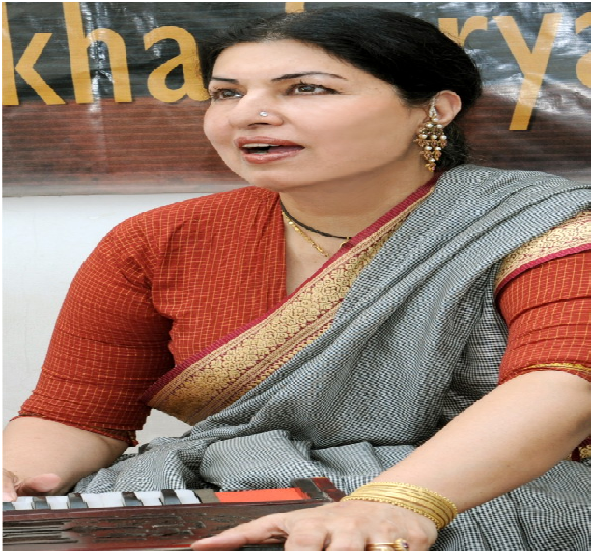
THE CITIZEN is happy to reproduce an interview by students of Miranda House with our very own singing star Rekha Surya whose commitment and dedication to the art pours out in this conversation
You attended a convent school in Lucknow. Were you encouraged to perform there? How did people respond to your zeal for singing?
As India was under British rule for almost two centuries, some prejudices trickled down post-colonial generations, affecting our attitudes towards our own culture. Although our fight for independence gave rise to nationalistic fervour, a sense of inferiority was ingrained by the British who prided themselves on being better educated and more sophisticated. So while Indian classical music was not looked down upon, it was not considered at par with Western music. Ustad Zakir Hussain recounts the times when he was asked to eat with domestic servants after house-concerts. So in school I never discussed my home music-classes. In school I sang for Gilbert and Sullivan productions like HMS Pinafore, an opera.
You had the fortune to train under two of the most famous gurus of Indian semi-classical music. How important is it to seek the tutelage of the ‘right’ guru in one’s career?
So much depends on tutelage. The teacher's temperament and musical style are both important in shaping one's vision of music. Only after imbibing the teacher's vision and approach to music can one use it as a springboard for creating your own style, which is not a conscious effort but emerges slowly from one's own temperament.
In your book, ‘Sung in a Sensual Style,’ you write about the concept of ‘Tauheed,’ or oneness and the importance of self-effacement in art. As an artist, is it a challenge to reconcile the difference between attempting to transcend the self, and identifying yourself as a unique singer with her own sensibilities?
This is a brilliant question because self-effacement and self-identity are not mutually exclusive. Demolishing the ego leads to spiritual awareness which is reflected in one's art even while an artist has a distinct musical identity, as in the case of Pandit Bhimsen Joshi.
Could you elaborate upon some trying periods of your musical career, maybe some opposition you had to face?
I pride myself on the fact that although I have no musical antecedents I carved out my own musical path. Of course it is a huge disadvantage to not belong to a musical family-- which has often made me feel like a mongrel in the world of music--but I respect myself and other self-made people for following their inner urges. While my family did not oppose my musical endeavour they could not enter my world and cheer me on. Pandit Hariprasad Chaurasia comes from a wrestler's family ! I have heard from a student of his that he still practices in a highly disciplined way.
In your interview to the Lucknow Tribune, you mentioned that Begum Akhtar weaned you away from Kathak since she believed that a person should only pursue one art-form whole-heartedly. How relevant is this notion today, for our generation of millenials who fetishize “multitasking”?
I think it is fine to have several interests so long as your main focus remains on what you love doing most. Today's world has so many distractions to offer so while one surrenders to some enriching activities one has to push aside less rewarding temptations.
What is your favourite memory from your days at Miranda House?
Sitting on the lawns during winter afternoons to soak in the sun, while chatting with friends after classes.
Do you perceive these times as an age of mediocrity and short-cuts in which various forms of art are easily available to people yet very few have the patience or passion to achieve expertise in them?
Actually, yes! It is mostly entertainment which is sought rather than art which challenges the intellect.
Do you have a particularly favourite place( a city for instance) or a venue where you love to perform and why?
I have no particular preference for a concert-venue but definitely feel inspired by an attentive and responsive audience. A music-setting can be formal or informal such as in a baithak but I hate singing in places where the stress is on social interaction. For a Hindustani light classical singer, an ideal audience is appreciative of both poetry and music.
What would be your advice to aspiring young artists especially women artists?
Don't seek approval from anyone other than yourself.

